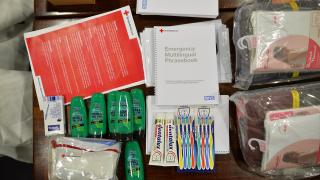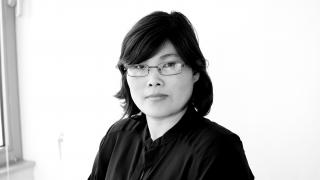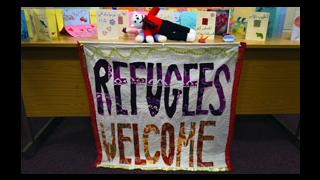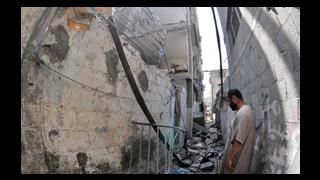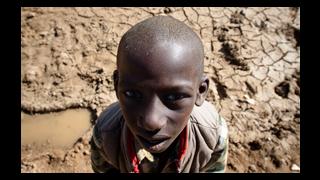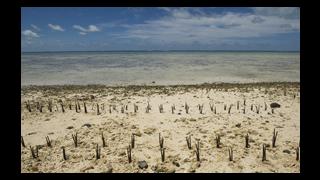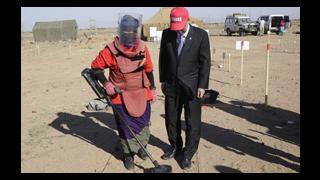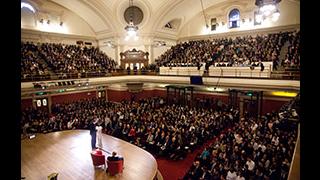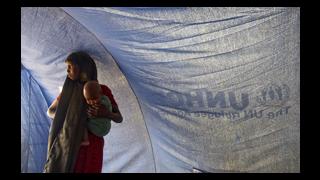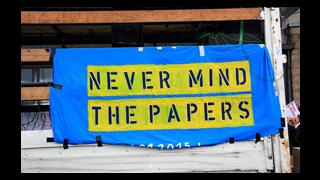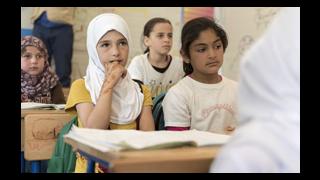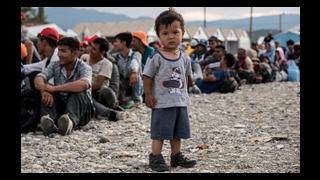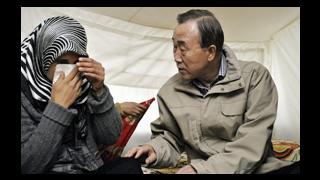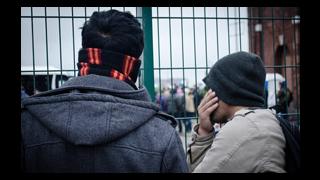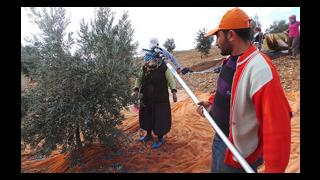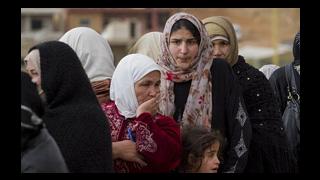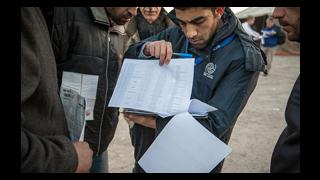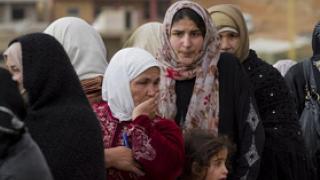
Kathryn Ramsay is a Gender Researcher at Amnesty International
“A lot of [refugee] women are subjected to assaults, harassment, theft and even rape but can’t present complaints because of their illegal status in Lebanon and being threatened with arrest.” – ‘Hanan’, Palestinian refugee from Syria
Lebanon hosts over one million Syrian refugees and around 44,000 Palestinian refugees from Syria. This means that about 25 per cent of the country’s population are refugees from Syria, with Lebanon hosting more refugees per capita than any other country in the world. Hosting this population has put considerable strain on Lebanon’s resources, infrastructure and services, including education and health care.
Refugee women from Syria living in Lebanon face risks of serious human rights violations and abuses. The failure of the international community to provide adequate funding for refugees in Lebanon has forced the UN to reduce the support it provides, leading to the majority of refugees living in poverty. This, combined with the government-imposed obstacles on refugees renewing their residence permits, has created a climate in which refugee women from Syria are at increased risk of violence.
The UN reports that approximately one in five Syrian refugee households are headed by women. For Palestinian refugees from Syria, this figure rises to nearly one in three.
Refugee women from Syria, especially those heading their households, struggle to meet the high cost of living in Lebanon; it is difficult to find sufficient money to buy food and pay rent for their accommodation.
About one quarter of the 77 refugee women interviewed in Amnesty International’s report, ‘“I want a safe place”: Refugee women uprooted and unprotected in Lebanon’, had had their UN monthly financial support for food stopped in the past year. Those still receiving the payment had seen the amount drop substantially. The UN reports that 70 per cent of Syrian refugee families live below the Lebanese national poverty line of US$3.85 per person per day.
This is partly because the UN-led humanitarian response to the refugee crisis is grossly underfunded. In 2015, the UN received less than 60 per cent of the funds it needed for its work in Lebanon. In response, it had to cut drastically the numbers of refugees receiving support and the amount of support provided.
One Syrian woman, ‘Iman’, said: “I have to save every penny I have and deprive the children of clothes, food and other things in order to save money to pay the rent for the house. The moment you don’t have the rent, the owner of the house will evict you.” Refugee women who were working or looking for work described how employers offer them very low wages because they know that they are in economic need and have no choice but to accept.
Amnesty International heard repeatedly from refugee women living in different areas of Lebanon about sexual harassment they experience in public spaces. In some cases, Lebanese men made inappropriate sexual advances towards them while they were going about their daily lives. In other cases, men offered financial or other assistance to refugee women in exchange for sexual activity. Women reported sexual harassment by police officers, government office employees, employers, neighbours, bus and taxi drivers, and strangers.
Most refugee women said that they would be afraid to report violence or harassment to the authorities because of having an invalid residence permit. “Hala” said, “of course I wouldn’t feel safe [to go to the police] because I don’t have a valid [residence] permit and they would ask for a valid permit whenever I walked into any police station”.
‘Hanan’, a Palestinian refugee from Syria, described how she was on a bus with her daughters and the driver sexually harassed her after showing her a gun. She was able to talk her way safely off the bus and went to the police. She said: “I was really angry but they [the police] told me, ‘Do you know that you’re not eligible to present a complaint? You don’t have legal status’.”
Refugee women in Lebanon are doing their best for themselves and their families; the international community and the Government of Lebanon must act immediately to ensure their rights are protected. The Lebanese Government must ensure that refugees can renew their residency by removing obstacles, including the $200 fee. They must also ensure that refugee women and girls are protected from violence and harassment and are able to seek redress without fear of negative consequences due to invalid residence permits.
Lebanon, in hosting more than one million refugees, also needs help. The international community must substantially increase its financial support to the UN humanitarian programme for refugees in Lebanon in order to avoid the damaging cuts seen in 2015. It must also increase resettlement and humanitarian admission places for refugees in Lebanon and the other main host countries.
Photo: Lebanese Town Opens its Doors to Newly Arrived Syrian Refugees. The women pictured here do not represent those mentioned in the article. Copyright UNHCR/ M. Hofer

